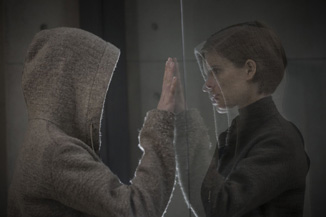|
|
The 400-Word Review: MorganBy Sean CollierSeptember 5, 2016
A psychiatrist (Paul Giamatti) is due in to investigate Morgan's mental state, and Weathers is to observe and report back. She's working with a hostile crowd, though; it's clear that the staff considers Morgan more of a child and less of a project, and Morgan herself has strong opinions about her treatment and future. Mara and crew do fine work, but they are outshone by Taylor-Joy, stealing the show for the second time this year (she delivered a knockout performance in The Witch). Surprisingly, Morgan doesn't falter when it fades from theoretical debates to cinematic action; the violence is well-handled and cinematic, and a tense tone is maintained throughout. There are some serious flaws in the script, most centering on illogical developments. With a project of this size, how do the corporate overseers have basically no idea what's going on? Why would a psychiatrist furiously berate his subject? And why are they in the middle of nowhere? Ignore those gaffes (and a twist you'll see coming from the first reel), though, and Morgan makes for an enjoyable enough ride. My Rating: 7/10 Sean Collier is the Associate Editor of Pittsburgh Magazine and a member of the Broadcast Film Critics Association. Read more from Sean at pittsburghmagazine.com/afterdark
[ Read more 400 word movie reviews ]
[ View other movie reviews ]
[ View other columns by Sean Collier ] [ Email this column ]
|

|
|
|

|
Thursday, October 31, 2024
© 2024 Box Office Prophets, a division of One Of Us, Inc.


